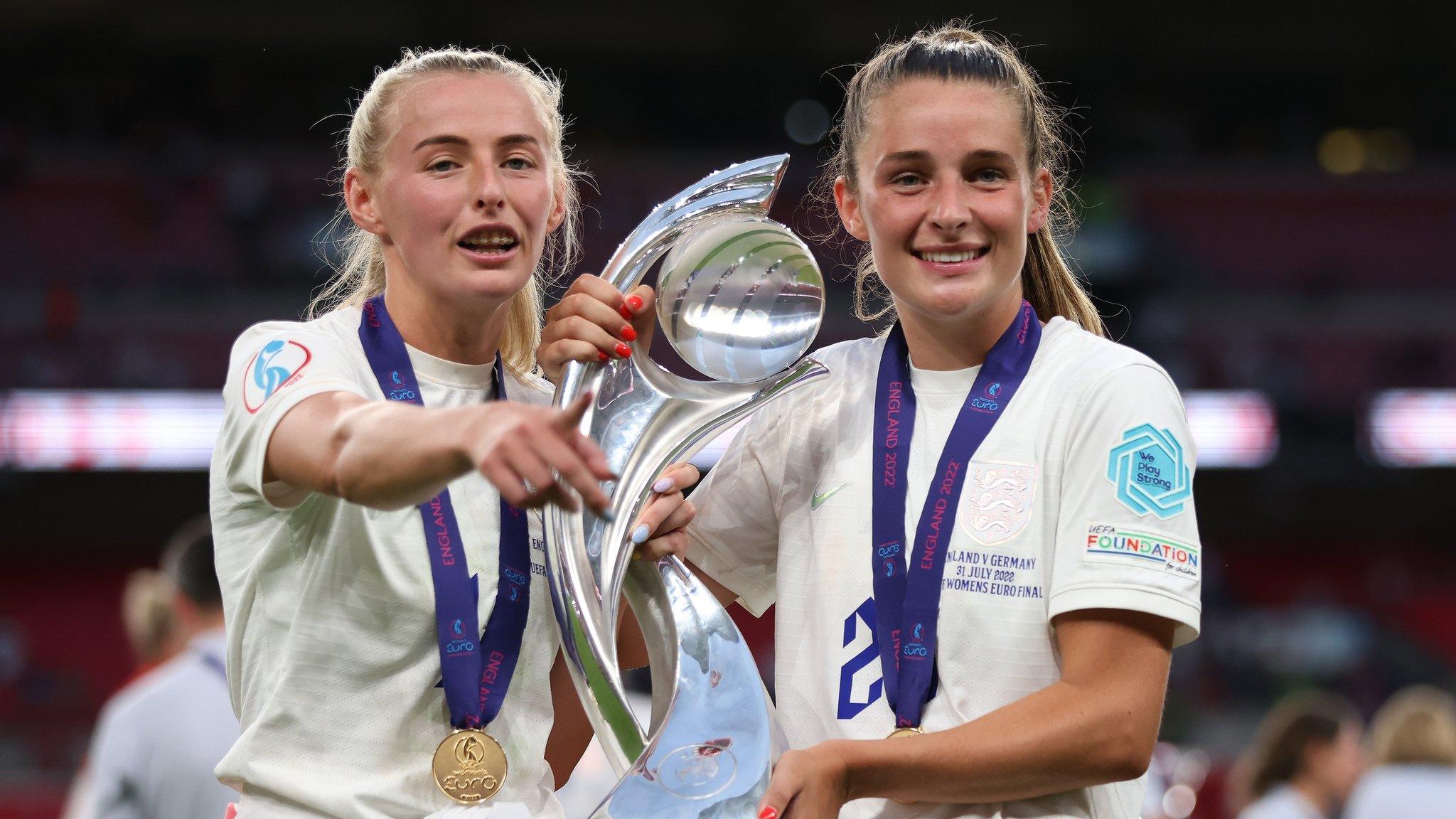England women’s football team: Lionesses set to make millions from Euro triumph
- Published
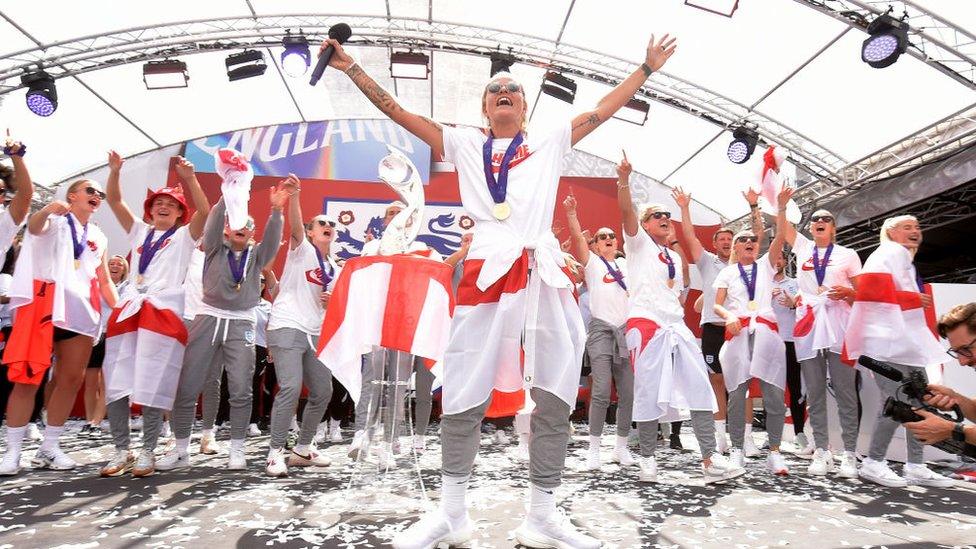
The Lionesses' emotional Euro 2022 victory is expected to lead to more interest and greater investment in the women's game.
"They have changed the way women's football is viewed in this country," former England international and TV pundit Alex Scott told the BBC.
"The train has left the station and it is gathering pace."
That pace should lead to more generous sponsorship deals, experts reckon, as well as encouraging higher wages for the top stars.
England's top earners are reported to make around £200,000 a year from club football.
Star defender Lucy Bronze already has endorsement deals with brands such as Pepsi, EE and Visa, to add to her salary.
England's captain Leah Williamson recently agreed a deal with Italian fashion house Gucci, alongside existing agreements with Pepsi and Nike.
But that should just be the beginning for the English stars who have the example of Norway's Ada Hegerberg to aim for: Hegerberg recently landed a £1m-plus deal with Nike.
Average wages in the Women's Super League are estimated at around £47,000, with some players reportedly earning as little as £20,000 a year.
But the Lionesses' success could help wages to rise closer to the likes of European giants Lyon, which is believed to hand its top players €500,000 (£420,000) per season.
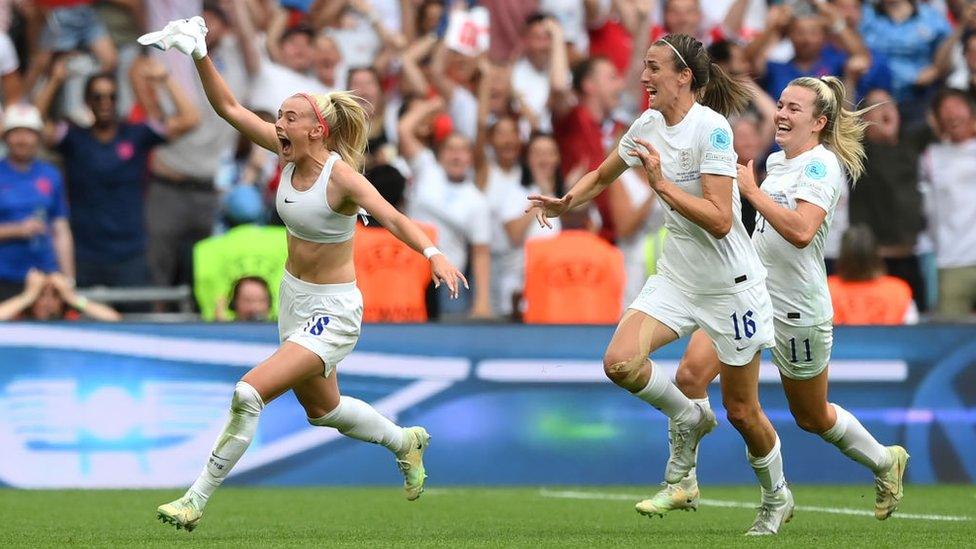
When Chloe Kelly ditched her shirt after scoring England's winning goal in Sunday's Euro 2022 final, she replicated what up until then had been the defining moment for the women's game.
US defender Brandi Chastain removed her top after scoring the winning penalty in the 1999 Women's World Cup.
That move became the sport's iconic image and netted the player an estimated $2m Nike sponsorship deal.
In beating Germany, England's Lionesses have created a fresh defining moment for women's football and the impact on the wider women's game is set to be enormous.
Sunday's triumph in front of a record attendance indicates that women's football has captured the hearts of fans, and has also caught the attention of businesses now keen to be associated with the game.
Football Association chief executive Mark Bullingham said the victory would have an enduring impact.
"I think it will really turbo charge everything we have been doing in the women's game," he told BBC Breakfast.
"There is no reason why we shouldn't have the same number of girls playing as boys and it will inspire a whole new generation of players."
Smart sponsorship
Euro 2022 marked the first time that sponsorship was offered just for the women's tournament, rather than deals being bundled with the men's tournament as in the past. Analysts at Neilsen Sports estimate that decision was a financially astute one.
Attracting big names such as Visa, Heineken, Lego and Pepsi has helped increase organiser Uefa's revenue stream by £25-£33m per year, they say.
Other tournament sponsors include Booking.com, Euronics, Grifols, Hisense, Just Eat Takeaway.com, Volkswagen, Adidas, Hublot, Nike, TikTok, LinkedIn, Pandora, Starling Bank and Gillette Venus.
"We're now seeing the results of the FA and Uefa investing in, and backing, women's football over a number of years, and it's bearing very strong results," said Lynsey Douglas, global lead, women's sports at Neilsen.
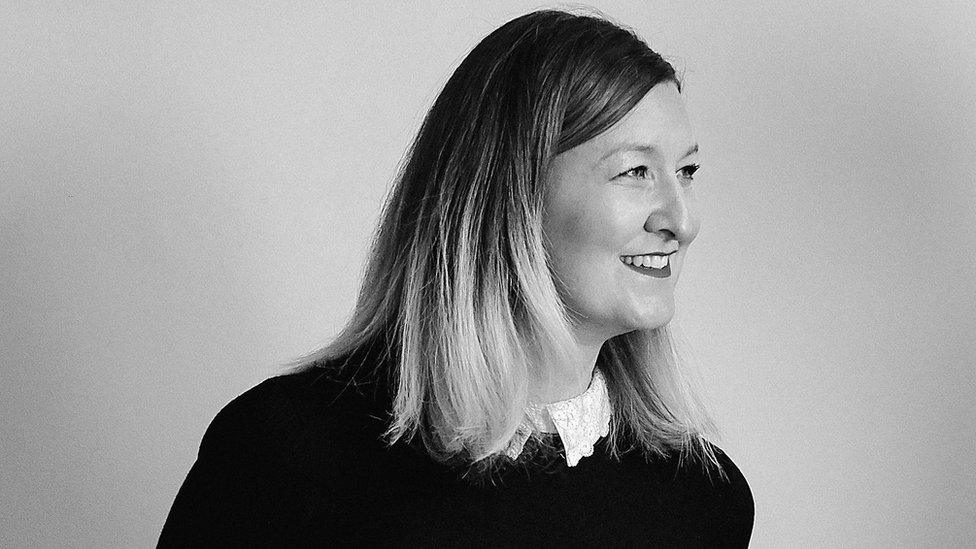
Lisa Parfitt says we're now seeing the results of the FA and Uefa investing in women's football
That cash should help the women's grassroots game but also help raise the profile of other women's sports.
Women's rugby and cricket has been pushed into the public eye in the Commonwealth Games, for instance, offering more interesting sponsorship opportunities for brands.
Television triumph
Increasing numbers of television viewers have helped improve the Lionesses' marketability.
Sunday's final recorded a peak TV audience of 17.4 million, a record for a women's football match in the UK.
"Viewership normally determines the magnitude of sponsorship and endorsement deals, so this tournament will be a catalyst for a business revolution in the women's game," said marketing expert Andrew Bloch, who has worked with the likes of Nike, Pepsi, Puma, Adidas and EA Games.
With the Lionesses becoming household names, their marketing value will rocket, said Lisa Parfitt, co-founder of sports marketing agency The Space Between.
But women's sport can prove to be a more attractive proposition than men's sport, she said.
"The Lionesses have provided the perfect shop window for brands looking for potential for sponsorship in their marketing campaigns," she said.
It's more affordable than men's sponsorship but the value is different, she pointed out. "Women's football has enormous reach, but women's sport fans are for more likely to be an advocate for a brand's sponsors, and far more likely to buy those brands' products."
In short, she reckons sponsoring women's sport can offer much better value.
Data from Neilsen Fan Insights backs that up by revealing that fans of women's football are more gender balanced and younger than fans of men's football - an attractive combination for brands.
Watershed moment
"There's been much talk over the years about watershed moments for women's sport, but there is no doubt we are truly experiencing one at the moment," said Annie Panter, who played in Team GB's medal-winning London 2012 hockey team, but is now managing director at sports marketing agency Two Circles.
She said much of the previous sponsorship in women's football has been down to companies wanting to be seen to be doing the right thing to meet corporate social responsibility targets.
The Lionesses' success means "women's football now represents a powerful purpose-led sponsorship platform that generates genuine commercial return on investment for a brand."
Natalie Quail, chief marketing officer at oral cosmetics firm SmileTime said the success has helped persuade brands like hers to engage with female football stars.
"We are now actively interested in sponsoring the sport because ultimately that's where we're seeing an emerging interest trending with our majority female customer base," she said.
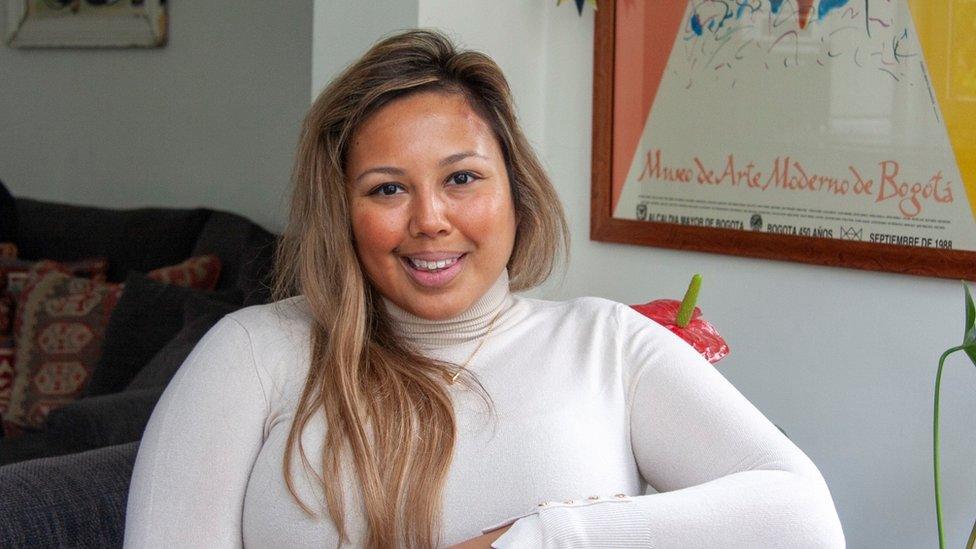
Marketer Natalie Quail says the team's success is garnering more attention from brands
She predicted the likes of rapid-growth e-commerce brands such as Gymshark, Pretty Little Thing and Asos "will be looking to do the same".
Underpriced
"More and more brands - at least the savvy ones - are recognising the commercial value of women's football," said Eric Fulwiler, chief executive of marketing consultancy Rival.
"It's underpriced compared to men's football and the current success of the Lionesses will help start to close the commercial gap with the men."
Alessia Russo's back-heel against Sweden and the nature of the win against Germany has helped women's sport finally get recognition for the quality of performances.
But the disparity between male and female earnings still has a long way to go.
The Lionesses have been reported to be earning a £55,000 bonus per player for winning the tournament.
That £1.3m handout to the squad would be much lower than the bonus of £5m that England's men had been reported to have received if they had won last summer's Euros.
"To truly capitalise on this competition's legacy from a commercial investment perspective we need to ensure that we translate audiences to domestic leagues, like the WSL, and to the Uefa Women's Champions League to create sustained growth in fandom," said Annie Panter.
Related topics
- Published1 August 2022
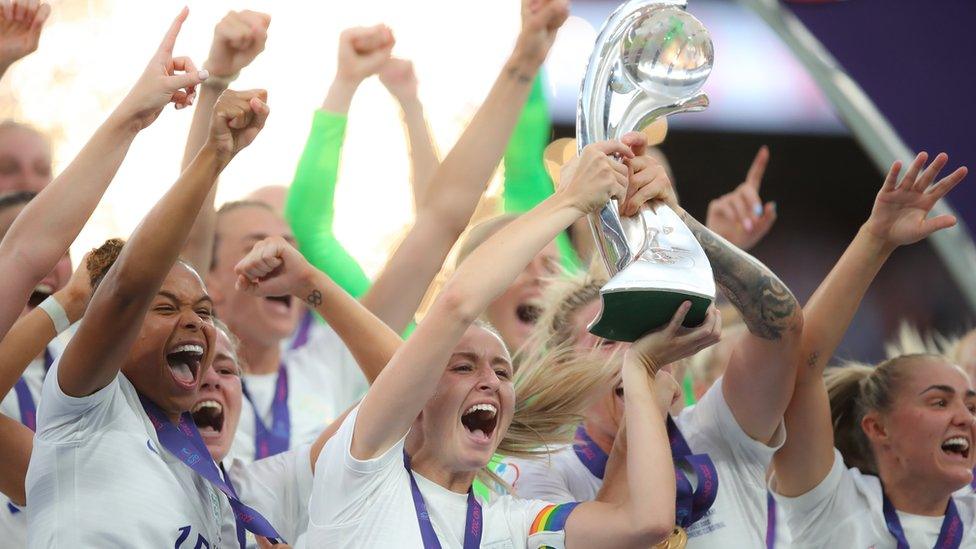
- Attribution
- Published1 August 2022
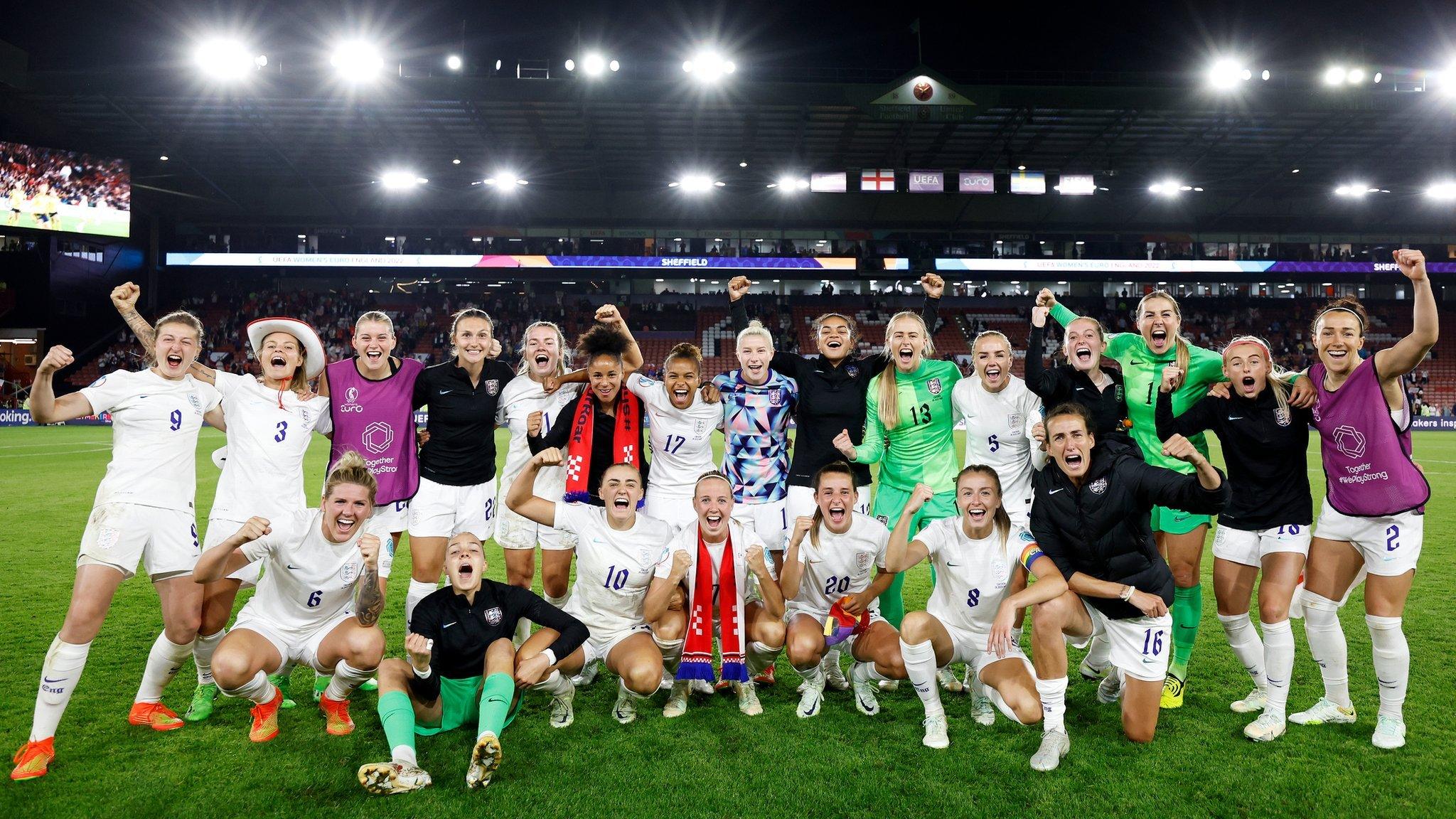
- Attribution
- Published1 August 2022
